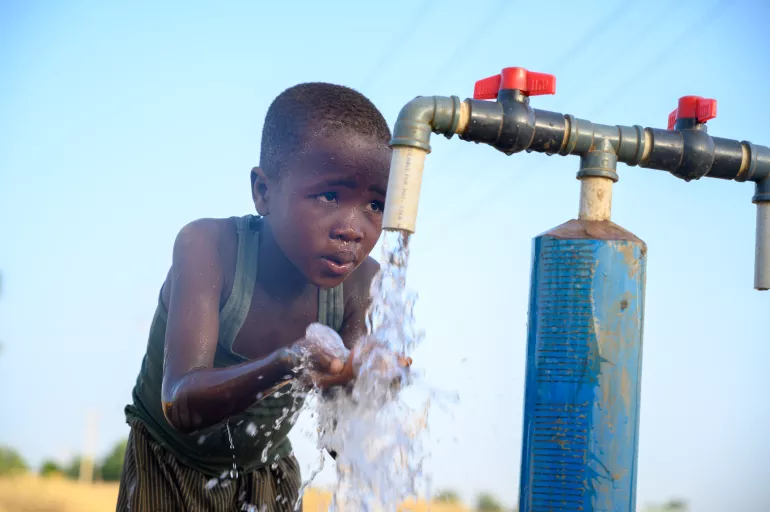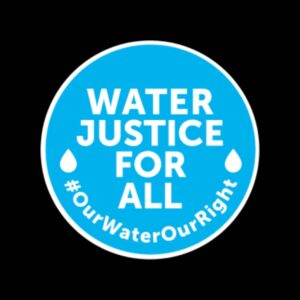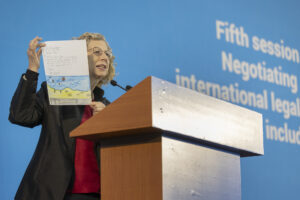
Lack of access to clean water is not just a sub-Saharan African problem – it’s global. Here’s what UNICEF said – Four billion people (almost two-thirds of the world’s population) experience severe water scarcity for at least one month each year; Over two billion people live in countries where water supply is inadequate; Half of the world’s population could be living in areas facing water scarcity by as early as next year; Some 700 million people could be displaced by intense water scarcity by 2030; and by 2040, roughly 1 in 4 children worldwide will be living in areas of extremely high water stress. So clean water is not only an ‘African’ problem, but also a global challenge. If it were not so, it wouldn’t be a part of the 17 SDGs.
Water is a fundamental resource essential for life, yet millions of people around the world, including in Nigeria, face challenges related to water scarcity and access to clean water. With a rapidly growing population, urbanization, and environmental degradation, Nigeria grapples with the complex issue of water scarcity, which has far-reaching implications for public health, economic development, and environmental sustainability.
Nigeria is blessed with abundant water resources, including rivers, lakes, and aquifers. However, uneven distribution, pollution, and inadequate infrastructure contribute to water scarcity in many parts of the country. According to the United Nations, over 60 million Nigerians lack access to clean water, with rural communities disproportionately affected. In urban areas, rapid population growth and inadequate water management exacerbate the problem, leading to unreliable water supply and waterborne diseases.
The challenges of water scarcity in Nigeria are manifold but the top three and most obvious are infrastructure deficiency, pollution, and climate change.
Infrastructure Deficiency – Outdated and inadequate water infrastructure, including pipelines, treatment plants, and storage facilities, hinders the efficient delivery of clean water to communities across Nigeria. Many existing water systems suffer from leakages, contamination, and inefficiencies, leading to significant losses and reduced access to safe water. I grew up seeing functional water pipelines in Lagos but much of that infrastructure is now dilapidated because of our poor national maintenance culture.
To tackle this challenge, Nigeria must invest in modernizing and expanding water infrastructures across the nation. Without this, we cannot improve water supply and distribution in Nigeria. A part of what this improvement must entail is the upgrade of treatment plants, repair, and replacement of ageing pipelines, and implementation of efficient water management practices. Examples from developed nations, such as the United States and some European countries, demonstrate the importance of robust infrastructure in ensuring reliable access to clean water.
Pollution and Contamination – Industrial discharge, agricultural runoff, and inadequate waste management contribute to water pollution in Nigeria, contaminating water sources and posing health risks to communities. Contaminated water leads to waterborne diseases such as cholera, typhoid fever, and diarrhoea, particularly affecting vulnerable populations, including children and the elderly.
Strengthening pollution control measures and enforcing environmental regulations are essential to safeguarding water quality in Nigeria. This involves monitoring industrial discharges, improving wastewater treatment facilities, and promoting sustainable agricultural practices to minimize runoff and contamination. Lessons from developed nations, where stringent environmental regulations have helped mitigate water pollution, can inform policy interventions in Nigeria.
Climate Change – I know you might already be getting tired of this word. There is almost no aspect of human lives today that climate change hasn’t affected. Climate variability and extreme weather events, including droughts and floods, further exacerbate water scarcity in Nigeria. Erratic rainfall patterns disrupt agricultural activities, exacerbate food insecurity, and strain water resources, particularly in arid and semi-arid regions. Climate change also impacts water quality, with rising temperatures and changing precipitation patterns affecting water availability and ecosystem health.
Enhancing climate resilience and adaptation strategies is crucial for addressing the impacts of climate change on water resources in Nigeria. This includes implementing climate-smart water management practices, such as rainwater harvesting, groundwater recharge, and drought-resistant crop cultivation. Developed nations have implemented climate adaptation measures, such as water-efficient irrigation systems and flood management infrastructure, to mitigate the impacts of climate change on water availability and quality. Nigeria can take a clue from this.
To add to these solutions, water conservation and efficiency is also another important aspect to tackle water scarcity in Nigeria. Promoting water conservation and efficiency measures can help alleviate pressure on water resources and reduce demand. This includes implementing water-saving technologies, promoting water reuse, and recycling, and raising awareness about the importance of water conservation among the public. Developed nations have successfully implemented water conservation programs, such as water-efficient appliances and landscaping practices, to reduce per capita water consumption.
Finally, addressing water scarcity and ensuring access to clean water is a complex and multifaceted challenge that requires coordinated action from government, civil society, and the private sector in Nigeria. By investing in infrastructure, promoting water conservation, controlling pollution, and enhancing climate resilience, Nigeria can improve water security, protect public health, and foster sustainable development. Drawing insights from experiences in developed nations can provide valuable lessons and best practices for tackling water scarcity effectively. With concerted efforts and innovative solutions, Nigeria can overcome the challenges of water scarcity and pave the way for a more water-secure future for all its citizens.
Olamide is a communications professional currently based in London, United Kingdom. He can be reached across social media platforms @olamidefrancis and via francisolamide1@gmail.com








